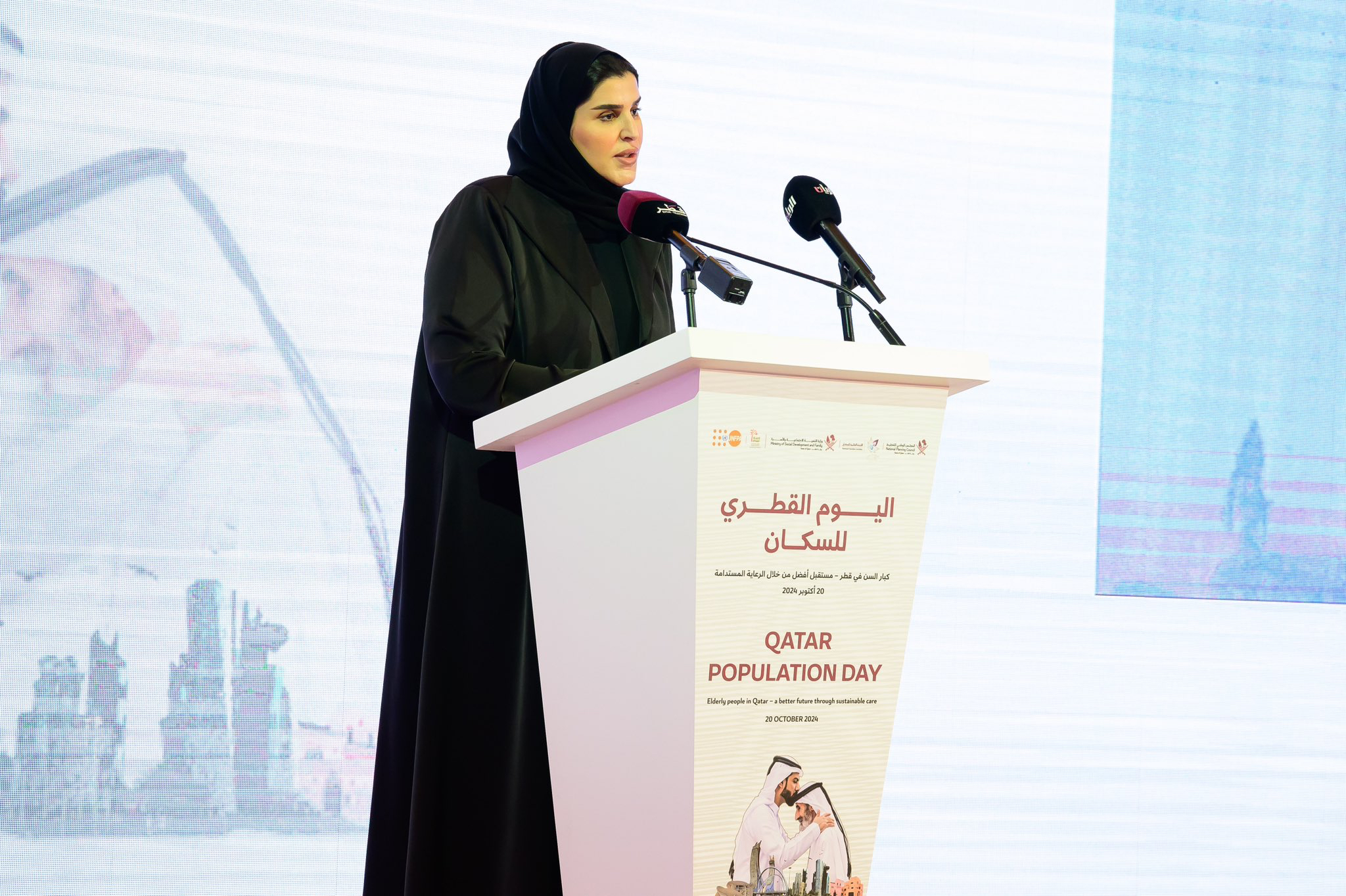For the Qatari Minister of Social Development and Family, providing care for the elderly is a national priority that aligns with the objectives of National Vision 2030.
The Qatari Permanent Population Committee (QPPC) has organised an event in collaboration with the Center for Empowerment and Care of the Elderly (Ehsan) to mark Qatar Population Day.
Centred around the theme “Elderly in the State of Qatar: A Better Future Through Sustainable Care,” the event on Sunday featured a symposium where government officials and health and social care experts addressed various challenges faced by the elderly.
Discussions included socioeconomic issues and the implementation of strategies aimed at enhancing the quality of life for senior citizens in Qatar.
The event was opened with a speech by Abdulaziz bin Nasser Al Khalifa, Secretary General of the National Planning Council. He highlighted the need to develop the national health and social care systems.
Al Khalifa, who is also the Chair of the QPPC, added that such development is a crucial step to reducing barriers for the elderly when it comes to community participation.
These issues hold particular significance for Maryam Al Misnad, Minister of the Social Development and Family department (MSDF). In her remarks at the symposium, she praised the elderly as “the memory and guiding lights on the path” to Qatar’s national development.
“Honouring them is a right, and caring for them is a national goal and duty affirmed by Qatar National Vision 2030,” she is cited as saying by Qatar News Agency.
The government’s manifesto for developmental goals by 2030 stresses the urgency of promoting support, care and social protection.
Also in attendance at the symposium was Jocelyn Fenard, the United Nations Population Fund’s (UNFPA) representative in Muscat. For his part, he emphasised the role of the existing cooperation between the Qatari entities and the UNFPA.
Elderly rights and services
The symposium included presentations that emphasised the need for further research on the social landscape of the elderly in Qatar, focusing on their health, financial, psychological, and social needs.
Additionally, there were discussions on the importance of updating the existing legal framework governing the rights and services for the elderly, particularly as their needs evolve.
During the interactive dialogue in September on the Enjoyment of All Human Rights by Older Persons at the 57th session of the Human Rights Council in Geneva, Hamad Masoud Hamad Al Athbi, the Second Secretary at the Human Rights Department of the Ministry of Foreign Affairs, underlined the importance of legal protections for the elderly.
He stated that Qatar’s legal and constitutional provisions are designed to ensure that the rights of older persons are upheld.
“Qatar works to protect the legal capacity of older persons by implementing training and educational programmes that enhance their cognitive abilities, while also providing them with access to information through suitable means and methods,” he was cited as saying by the Foreign Ministry.
The advent of Qatar Population Day dates back to 2010 following a decision reached by the Council of Ministers, approving its observance annually in October.
Last year’s focus was aimed at tackling divorce in Qatari society and developing strategies to educate young people about the societal importance of marriage.







